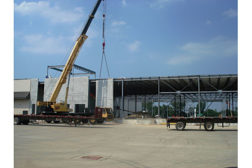Supply Chain & Logistics
Cold Storage Construction Trends: What’s Old is New Again
Rather than build anew, companies are upgrading, renovating and replacing existing buildings with new equipment and technology to keep up with today’s ever-changing industry demands.
September 10, 2013
Elevate your expertise in refrigerated and frozen foods with unparalleled insights and connections.
Get the latest industry updates tailored your way.
JOIN TODAY!Copyright ©2024. All Rights Reserved BNP Media.
Design, CMS, Hosting & Web Development :: ePublishing








